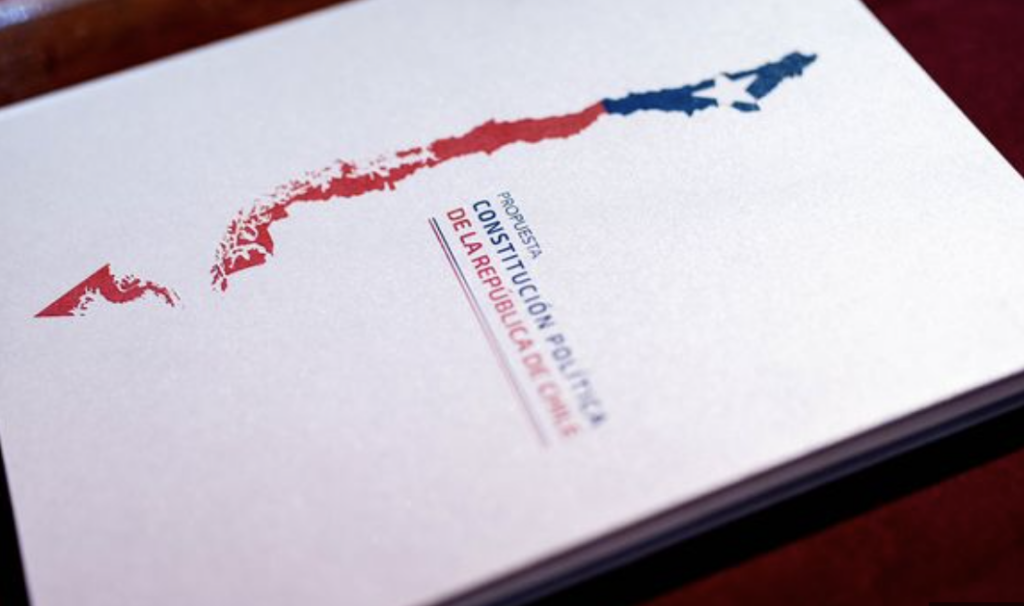Yesterday, November 7th, 2023, the Executive received the new constitutional proposal that will be voted on in a plebiscite on December 17th of this year.
Below, we highlight the tax aspects:
Chapter II: Fundamental Rights and Freedoms, Constitutional Guarantees and Duties.
• Article 16 No. 29 c): Right to adequate housing. The property intended for the owner’s main home, whether he lives alone or with his family, will be exempt from all contributions and land taxes.
• Article 16 No. 31: Equal distribution of taxes in proportion to income or in the progression or manner established by law and the equal distribution and proportionality of other legal public charges.
a. In no case may the law establish taxes that, individually or jointly considered, with respect to the same person, are disproportionate, confiscatory in scope, unfair or retroactive.
b. Expenses objectively necessary for the life, care or development of the person and their family will be considered deductible for the determination of the corresponding taxes.
c. The taxes collected, whatever their nature, will enter the Nation’s assets and cannot be assigned to a specific destination.
d. However, the law may authorize that certain taxes may be used for national defense purposes. Likewise, the law may authorize that certain taxes that levy activities or goods that have a clear regional or local identification may be applied, within the frameworks that the same law establishes, by the regional or communal authorities for the financing of development works and investment.
e. The State must compensate for discriminatory, disproportionate or retroactive public charges. The law will establish a procedure to make this compensation effective. Said law must also contemplate a procedure to enforce the patrimonial responsibility of the State for acts of the legislator that contravene this Constitution, when so declared by the Constitutional Court.
• Article 37 N°5: The inhabitants of the Republic must comply with public duties, contribute to the maintenance of public spending by paying taxes in accordance with their economic capacity, and vote in elections and plebiscites, all in accordance with the Constitution and the law. Likewise, they must defend peace and use peaceful methods of political action.
Chapter IV: National Congress. Formation of the law:
• Article 76 N°4: Laws on taxes of any nature, on the budgets of the State Administration and on recruitment, can only originate in the Chamber of Deputies. Laws on amnesty, on general pardons, on regional and local administration and government, municipalities and on political and administrative division can only originate in the Senate.
• Article 78 N°2: The President of the Republic will also have the exclusive initiative to: a) Impose, eliminate, reduce or forgive taxes and other public charges of any kind or nature, establish exemptions or modify existing ones, and determine its form, proportionality or progression.
Chapter XII: Public Ministry:
• Article 186:
1. There will be an Interinstitutional Coordination Council chaired by the National Prosecutor, whose function will be to advise and collaborate with the Public Ministry in the performance of its functions.
2. It will be made up of:
a. The Minister in charge of public security or whoever he designates.
b. The Minister in charge of relations with the Judiciary or whoever he or she designates.
c. The Minister in charge of promoting public policies related to women or whoever he or she designates.
d. d) The General Director of the Carabineros of Chile.
e. The General Director of the Investigative Police of Chile.
f. The National Director of the Gendarmerie of Chile.
g. The Director of the service in charge of the application and supervision of internal taxes.
h. A representative of the body in charge of the maritime police function.
i. A representative of the organization in charge of preventing money laundering from organized crime.
3. The institutional law will establish its operation and the inter-institutional coordination mechanisms.
Transitory dispositions:
• Fourteenth:
1. Within a period of six months from the entry into force of this Constitution, the President of the Republic must send to the National Congress a bill that contemplates the exceptions to the exemption referred to in the second paragraph of literal c) of paragraph 29 of article 16. (Exemption from paying Land Tax for main residence).
2. The exemption established in literal c) of paragraph 29 of article 16 will be applied as of right by the tax administration and progressively, with respect to the annual territorial tax to be paid, starting from January 1, 2026, at a rate of twenty percent annually until its full implementation.
3. Within a period of one year from the entry into force of this Constitution, the President of the Republic must send to the National Congress a bill that will contemplate mechanisms that will allow compensation for the decrease in municipal income that may eventually be generated, according to the progression indicated in the preceding paragraph.
• Fifteenth:
1. Within a period of two years, counted from the entry into force of this Constitution, the President of the Republic must send a bill to the National Congress, to create the procedures described in literal e) of paragraph 31 of article 16. (Compensation for discriminatory, disproportionate or retroactive public charges).
2. Until the law referred to in the preceding paragraph comes into effect, the knowledge and resolution of these matters will be submitted to the ordinary courts of justice and will be processed in accordance with the ordinary procedure provided for in the current Second Book of the Code. of Civil Procedure.
To read the full text of the New Constitution, here https://proyectostributarios.fycom.cl/wp-content/uploads/2023/11/PROPUESTA-DE-NUEVA-CONSTITUCION-POLITICA-DE-LA-REPUBLICA.pdf
